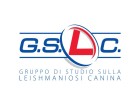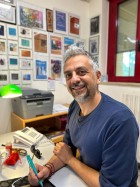In the second Live Webinar on Canine Leishmaniosis, free access, that will be held November 17th 2020, from 1:30 pm, organized with the support of Ecuphar, will be discussed the topical repellents currently available in Italy, useful to protect dogs against the flebotomine bites and then to prevent the Leishmania transmission.
In the webinar will be displayed scientific information and practical advices about:


